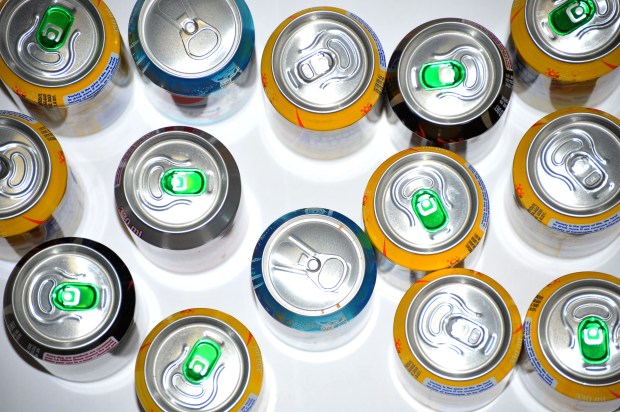Health
Sugary and Diet Drinks Linked to Higher Liver Disease Risk

A recent study reveals that both sugary and diet fizzy drinks significantly raise the risk of developing liver disease. Conducted by researchers at Soochow University in China, the research examined health records of over 124,000 people in the UK and found that regular consumption of sweetened beverages can increase the likelihood of developing non-alcoholic fatty liver disease (NAFLD) by up to 60 percent.
The findings challenge the long-held belief that sugar-free drinks are a safe alternative. The study indicated that even consuming just one can of either sugary or artificially sweetened soft drinks per day could be harmful. This is particularly concerning as approximately one in five people in the UK is estimated to have some form of liver disease, a figure that has been steadily rising.
Understanding the Risks of Sweetened Beverages
According to the study, those who consumed at least 250 milliliters of sugar-sweetened beverages daily had a 50 percent increased risk for liver disease, while the same quantity of diet drinks was associated with a 60 percent elevated risk. Lead author Lihe Liu emphasized that the perception of diet drinks being a healthier choice is misleading. “Our findings highlight the need to reconsider their role in diet and liver health, especially as liver disease emerges as a global health concern,” Liu stated.
The research suggests that sugary drinks contribute directly to fat accumulation in the liver, as the body stores excess sugar. In contrast, diet drinks might disrupt gut bacteria and insulin production, potentially leading to increased cravings for unhealthy foods.
Individuals who replaced soft drinks with water showed a decline in their risk for liver disease. Early symptoms of the condition may include fatigue, low energy, or discomfort in the upper right abdomen.
Stages of Non-Alcoholic Fatty Liver Disease
NAFLD develops in several stages, and having one stage does not guarantee progression to the next. Effective management through a healthy diet, physical activity, and weight loss can slow or even reverse the condition, particularly in its earlier stages.
The disease begins with a simple accumulation of fat in the liver, known as fatty liver, which can be fully reversed if addressed promptly. If left untreated, it can progress to non-alcohol-related steatohepatitis (NASH), where inflammation and liver damage occur, potentially leading to mild fibrosis. As the condition advances, moderate or advanced fibrosis can develop, resulting in significant scarring.
In severe cases, cirrhosis can occur, where excessive scarring alters the liver’s shape and function, increasing the risk of life-threatening conditions such as liver cancer and liver failure.
The findings underscore the importance of public awareness regarding the health implications of both sugary and artificially sweetened beverages. As liver disease becomes an increasingly pressing global health issue, the safest approach remains to limit the intake of these drinks and prioritize water as a hydrant.
For more information on liver health, the British Liver Trust offers resources and guidance on managing risks associated with liver disease.
-

 World2 days ago
World2 days agoCoronation Street’s Shocking Murder Twist Reveals Family Secrets
-

 Entertainment4 months ago
Entertainment4 months agoKate Garraway Sells £2 Million Home Amid Financial Struggles
-

 Entertainment3 months ago
Entertainment3 months agoAnn Ming Reflects on ITV’s ‘I Fought the Law’ Drama
-

 Health3 months ago
Health3 months agoKatie Price Faces New Health Concerns After Cancer Symptoms Resurface
-

 Entertainment3 weeks ago
Entertainment3 weeks agoCoronation Street Fans React as Todd Faces Heartbreaking Choice
-

 World3 weeks ago
World3 weeks agoBailey Announces Heartbreaking Split from Rebecca After Reunion
-

 World5 days ago
World5 days agoKevin Sinfield Exceeds Fundraising Goal Ahead of Final Marathons
-

 Entertainment3 months ago
Entertainment3 months agoCoronation Street’s Carl Webster Faces Trouble with New Affairs
-

 Entertainment5 days ago
Entertainment5 days agoTwo Stars Evicted from I’m A Celebrity Just Days Before Finale
-

 Entertainment3 months ago
Entertainment3 months agoWhere is Tinder Swindler Simon Leviev? Latest Updates Revealed
-

 Entertainment4 months ago
Entertainment4 months agoMarkiplier Addresses AI Controversy During Livestream Response
-

 Science2 months ago
Science2 months agoBrian Cox Addresses Claims of Alien Probe in 3I/ATLAS Discovery


















